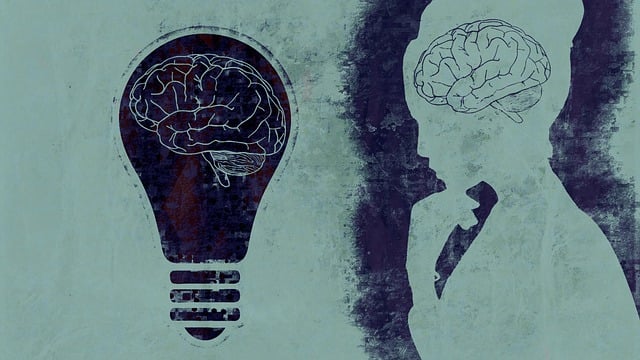Northglenn Couples Counseling Therapy offers comprehensive Crisis Intervention Team (CIT) training, empowering healthcare providers to manage mental health crises effectively. Their program includes self-awareness exercises, evidence-based techniques, role-playing scenarios, and workshops, focusing on de-escalation, communication, emotional regulation, and breaking stigma. This holistic approach not only benefits individuals but also strengthens community resilience through public awareness campaigns and advocacy, making Northglenn Couples Counseling Therapy a leading provider in CIT training.
“Crisis Intervention Team (CIT) training is a vital asset in any community, especially from the perspective of Northglenn Couples Counseling Therapy. This article explores the critical role of CITs in managing mental health crises and the importance of comprehensive training for professionals. We delve into key components that make for effective programs, offering strategies for successful team integration. By examining real-world scenarios, we equip readers with insights to enhance crisis response capabilities, drawing from the expertise of Northglenn Couples Counseling.”
- Understanding Crisis Intervention Teams: A Northglenn Couples Counseling Perspective
- The Importance of Training: Equipping Professionals for Real-World Scenarios
- Key Components of Effective Programs: What to Look Out For
- Implementation and Impact: Strategies for Successful Team Integration
Understanding Crisis Intervention Teams: A Northglenn Couples Counseling Perspective

In today’s fast-paced world, crisis intervention teams (CITs) play a pivotal role in providing immediate support to individuals facing severe emotional distress or mental health crises. Northglenn Couples Counseling Therapy recognizes the importance of these specialized teams and offers valuable insights into their effectiveness. From the perspective of our experienced therapists, CIT training programs empower individuals with the skills needed to recognize and de-escalate potentially harmful situations. These teams are typically composed of first responders, mental health professionals, and community members who receive intensive training in crisis management.
At Northglenn Couples Counseling Therapy, we emphasize the significance of self-awareness exercises as a fundamental component of CIT preparation. By fostering better understanding and communication, these exercises enhance the team’s ability to navigate complex situations. Our Mental Health Education Programs Design focuses on equipping participants with evidence-based techniques for conflict resolution, ensuring they can handle crises with empathy and professionalism. Through role-playing scenarios and interactive workshops, Northglenn Couples Counseling Therapy ensures that each member of a crisis intervention team is well-prepared to offer compassionate care during times of heightened emotional turmoil.
The Importance of Training: Equipping Professionals for Real-World Scenarios

In the realm of mental health support, crisis intervention team (CIT) training programs play a pivotal role in equipping professionals to handle real-world scenarios effectively. At Northglenn Couples Counseling Therapy, we understand that our healthcare providers are often the first line of defense when individuals face emotional crises. Therefore, comprehensive training is not just beneficial but essential. It ensures that our staff is well-prepared to navigate complex situations with empathy and expertise, fostering a supportive environment for those in need.
The significance of such training extends beyond individual interventions; it impacts community health as a whole. By enhancing the cultural competency of healthcare providers through programs like Mental Health Policy Analysis and Advocacy, we promote understanding and effective response to diverse populations’ unique needs. This, in turn, contributes to improved mood management strategies, reflecting a holistic approach that addresses not just symptoms but underlying issues.
Key Components of Effective Programs: What to Look Out For

Effective crisis intervention team (CIT) training programs are multifaceted and well-structured, incorporating key components to ensure optimal preparation for real-world scenarios. One of the primary aspects to look out for is a comprehensive curriculum that covers various crisis situations, including but not limited to mental health emergencies, domestic violence, and substance abuse issues. The program should offer practical tools and techniques for de-escalation, communication, and emotional regulation, enabling team members to provide immediate support while maintaining their own safety.
Additionally, high-quality CIT training should focus on breaking down the mental illness stigma through educational sessions and role-playing scenarios. Northglenn Couples Counseling Therapy, for instance, emphasizes these aspects, ensuring that participants gain a deeper understanding of the nuances surrounding mental health challenges. Crisis Intervention Guidance is another critical element, providing structured protocols for assessing risk and making informed decisions during crises. Overall, an ideal program combines theoretical knowledge with hands-on experience, fostering confident and competent CIT team members ready to make a positive impact in their communities.
Implementation and Impact: Strategies for Successful Team Integration

Effective crisis intervention team training programs go beyond mere knowledge transfer. For optimal impact, implementation strategies must prioritize seamless team integration. Northglenn Couples Counseling Therapy serves as a prime example, demonstrating that successful teams foster open communication channels and regular debriefings to enhance collaboration. By creating a safe space for emotional expression and sharing of experiences, these teams cultivate resilience—a cornerstone in promoting the emotional well-being of individuals and communities.
Moreover, leveraging public awareness campaigns development alongside Emotional Well-being Promotion Techniques can further bolster team effectiveness. Such initiatives educate the public on recognizing and responding to crises, fostering a culture of support and reducing stigma. This collective effort not only strengthens the reach of crisis intervention teams but also contributes to building stronger, more resilient communities where individuals feel empowered to support one another during challenging times.
Crisis intervention team training is a vital component in equipping professionals, such as those at Northglenn Couples Counseling Therapy, to handle real-world scenarios effectively. By focusing on key components like cultural competency, evidence-based practices, and communication skills, these programs foster strong team integration and positive impact. Investing in comprehensive training ensures crisis teams are prepared to navigate complex situations with empathy and professionalism, ultimately enhancing the support they provide to individuals and communities in need.














